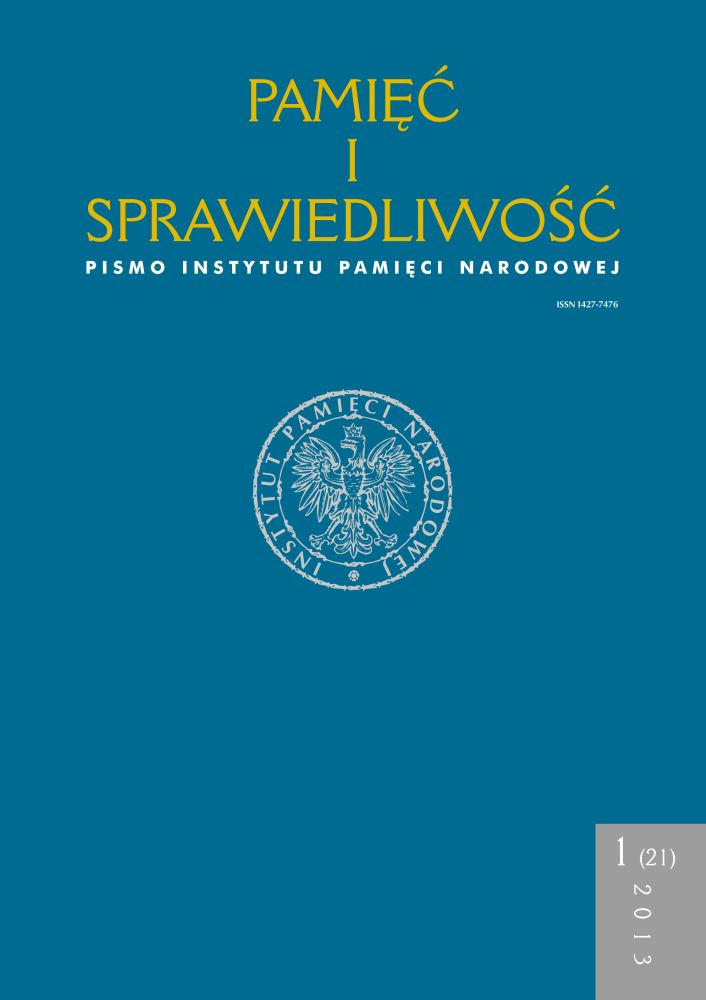Listy i skargi na działalność MSW w latach sześćdziesiątych, siedemdziesiątych i osiemdziesiątych XX wieku w analizach Biura Skarg i Listów MSW
Letters and complaints concerning the activities of the Ministry of Internal Affairs (MSW) in the 1960s, 70s and 80s of the 20th century in the analysis of the Office for Complaints and Letters of MSW
Author(s): Konrad RokickiSubject(s): History, Recent History (1900 till today), Post-War period (1950 - 1989)
Published by: Instytut Pamięci Narodowej
Keywords: Ministry of Internal Affairs (MSW)
Summary/Abstract: Several conclusions can be drawn from the materials analyzed by the Office for Complaints and Letters of MSW. Firstly: the most common cause of filing complaints by the citizens was the militia’s failure or tardiness in fulfilling their duties (receiving notifications of crimes, conducting investigations). Secondly: many complaints concerned the officers’ behavior off duty, under the influence of alcohol. Officers abused their position when dealing with conflicts with neighbors or settling private matters with a sense of impunity resulting from the fact they were wearing a uniform. Thirdly: citizens did not have a great chance for a positive consideration of their complaints. Most cases were dismissed or examined in favor of the accused, especially if there were no third parties. Fourth: particular attention was drawn to complaints concerning the use of violence by officers, officers were trained in law and requested to behave in a cultural manner. However, the problem of violence used by officers was a permanent issue and attempts were made to diminish its significance by a small percentage of “confirmed” incidents (no witnesses). Fifth: the nature and number of complaints were mostly affected by the political atmosphere in the country. In periods of repression, e.g. in March 1968 or during Martial Law, the number of complaints fell, as the society was afraid of the militia and SB, despite the fact that certain incidents, such as beating, unjustified arrests, etc. occurred more frequently than in other years. However, thechange of leadership in the Communist Party (1971) was enough to increase the number of complaints concerning the interventions of “the law and order officers” which took place during workers’ demonstrations in the time of the previous leaders. And finally: the question, whether the complaints filed by the citizens could have changed anything in the behavior of MSW officers. It was difficult to prove the guilt, especially because the investigation was also conducted by MSW units (sometimes even by the accused himself!). The consequences, even in the case the charges were proved, were insignificant, sometimes only symbolic. The reporting process was bureaucratic and, as may be guessed, in many units treated as the necessary evil, whereas preventive measures (regulations, trainings) were ineffective because of the officers’ sense of impunity. The Citizen’s Militia and SB wereexecutive authorities implementing the Party’s politics concerning safety.
Journal: Pamięć i Sprawiedliwość.
- Issue Year: 21/2013
- Issue No: 1
- Page Range: 83-103
- Page Count: 21
- Language: Polish

